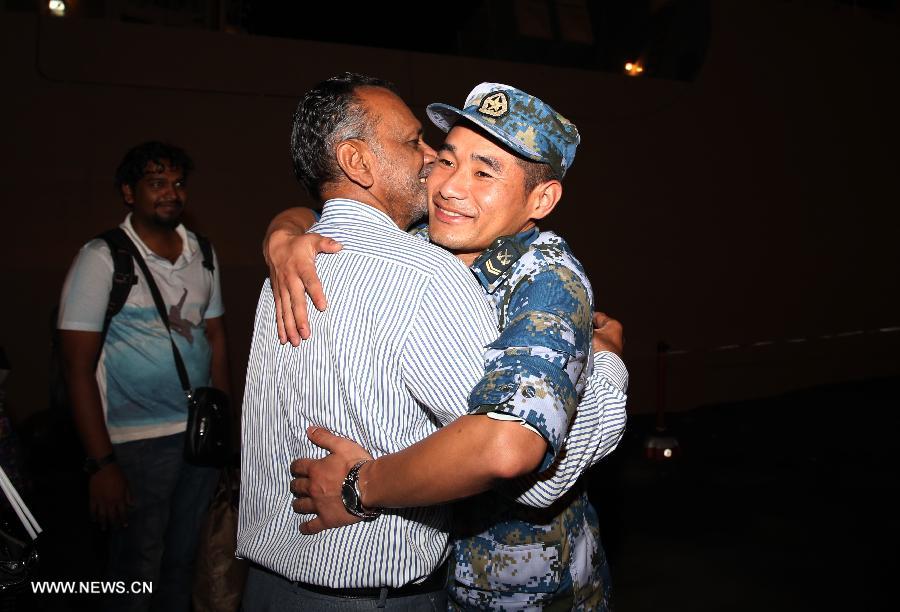China impresses with Yemen evacuation
china.org.cn / chinagate.cn by Tim Collard, April 10, 2015 Adjust font size:
|
A Sri Lankan national embraces a crew member of the Chinese "Linyi" missile frigate in Djibouti, on April 7, 2015. A total of 38 Chinese nationals and 45 Sri Lankans evacuated by the Chinese frigate from Yemen arrived in Djibouti early Tuesday, April 7, 2015. [Photo/Xinhua] |
A decade or more ago, China would probably have simply called for peace, order and respect for national sovereignty, and left it at that. But the new leadership has become aware that the increase in China's economic and commercial reach has left the nation unable to ignore the defense of its overseas interests. China's basic policy of discouraging outside military intervention has not changed, but a defense white paper issued in 2013 demonstrated a developing approach: "With the gradual integration of China's economy into the world economic system, overseas interests have now become an integral component of China's national interests." The paper continued, "Security issues are increasingly prominent, involving overseas energy and resources, strategic sea lines of communication, and Chinese nationals and legal persons overseas." Defending these interests was explicitly stated to be a new part of the mission of the People's Liberation Army.
The last of the elements mentioned above – the security of Chinese citizens resident overseas – has grown rapidly in importance in recent years. Between 2006 and 2010, 6,000 Chinese citizens had to be rescued from dangerous territory, largely in the Middle East. In 2011, nearly 50,000 Chinese had to be rescued by the PLA Navy, largely from Libya. Sadly, some of the world's most economically important regions, particularly those related to energy supplies, lie in those parts of the world that are most troubled by unrest. Ironically, such areas are often the ones that are most in need of infrastructural assistance, which has long been a Chinese specialty.
There were only 600 Chinese people working in Yemen, but the nation could not allow them to come to harm, both for humanitarian and for strategic reasons. For some time now China has had a presence around the Gulf of Aden, with the PLA Navy participating in counter-piracy operations since 2008. Therefore, although many nations had citizens under threat in Yemen, China was one of the few countries in a position to mount a rescue operation.
Thus, in addition to showing the Chinese people that their country is willing and prepared to take action to protect them, China has also garnered the sincere thanks of many other nations whose citizens were also saved from danger by Chinese ships.
